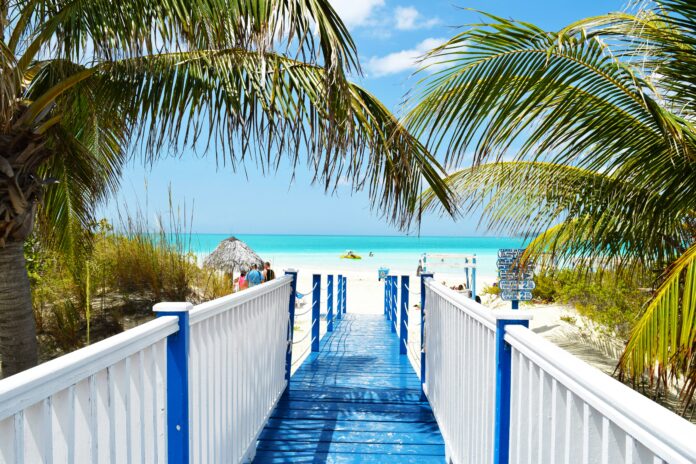Caribbean islands of Dominica and St Kitts are becoming increasingly popular among high-net-worth individuals looking for a new home. These paradisiacal destinations offer not only stunning natural beauty but also attractive relocation pathways, for example Dominica citizenship by investment program.
In this interview with Lyle Julien, Investment Programs Expert at Immigrant Invest, we explore why the Caribbean is a top choice for expats and provide a comprehensive guide on moving to the Caribbean through investment.
Why Move to the Caribbean?
Quality of life. The Caribbean offers a high quality of life with its clean beaches, tropical climate, and laid-back lifestyle. Many expats are drawn to the region for its natural beauty and serene environment, which provides an ideal escape from the hustle and bustle of urban life.
Tax benefits. One of the advantages of relocating to the Caribbean is the attractive tax system. Many Caribbean countries, including Dominica and St Kitts, offer attractive tax incentives for foreign investors, including no capital gains tax, no inheritance tax, and low income tax rates.
Healthcare and education. The Caribbean has made a significant impact in healthcare and education. Both Dominica and St Kitts have modern healthcare facilities and a range of educational institutions that cater to international standards, making them ideal for families.
Cultural diversity. The Caribbean is known for its culture, which is a mix of African and European influences. Festivals, music, and cuisine in Dominica and St Kitts offer a rich cultural experience that enhances the quality of life for expatriates.
Popular Destinations Among Expats: Dominica and St Kitts and Nevis
Dominica. Known as the “Nature Isle of the Caribbean”, Dominica is famous for its lush rainforests, warm springs, and waterfalls. It is a haven for nature lovers and offers a peaceful lifestyle with a strong sense of community. The island’s commitment to eco-tourism and sustainable development ensures that its natural beauty is preserved for future generations.
St Kitts and Nevis. This twin-island nation has pristine beaches, diverse culture, and a stable economy. St Kitts is known for its bustling tourism industry, while Nevis offers a more tranquil and exclusive environment. Islands provide opportunities for expats looking to enjoy a luxurious lifestyle. The islands’ colonial history is evident in their architecture and cultural practices, adding a unique charm to living there.
Dominica and St Kitts have growing expat communities, providing new residents with a support network and opportunities to connect with like-minded individuals. These communities organise social events, making it easier for foreign newcomers to integrate and feel at home.
How to Immigrate to Dominica and St Kitts Through Investment
Both Dominica and St Kitts and Nevis offer Citizenship by investment programs, CBI, which are among the most reputable in the world. These pathways provide a straightforward process to citizenship for investors, including passport benefits. For example, investors travel to more than 150 countries visa-free with St Kitts and Nevis second passport.
Dominica CBI program. To immigrate to Dominica, investors can
- Make a non-refundable contribution to the Economic Diversification Fund starting at $200,000 for a single applicant.
- Invest in real estate with a minimum cost of $200,000.
The EDF supports public and private sector projects, enhancing the country’s development. The real estate investment option provides an opportunity to return the money and obtain income by selling the property in 3—5 years.
St Kitts and Nevis CBI program. To immigrate to St Kitts investors can choose between two main options:
- A non-refundable contribution to the Federal Consolidated Fund starting at $250,000 for a single applicant.
- A real estate investment with a value of $400,000 or more in government-approved projects.
The SGF is used to support various sectors, including healthcare, education, and infrastructure. The property under the second option can be sold in 7 years.
The application process for both programs takes six months. Applicants must undergo Due Diligence, provide necessary documents, and pay the required fees. Once approved, they can enjoy the benefits of citizenship, including visa-free travel to more than 150 countries. Both countries have streamlined their application processes to ensure efficiency and transparency.
Neither Dominica nor St Kitts requires applicants to reside in the country during the application process. This flexibility allows investors to maintain their primary residence elsewhere while enjoying the benefits of Caribbean citizenship.
Buying Real Estate: A Popular Way to Obtain Second Citizenship in the Caribbean
Investing in real estate is a popular method to obtain second citizenship in the Caribbean. Both Dominica and St Kitts offer a range of investment opportunities, from luxury villas to beachfront properties. Real estate investments can provide a steady rental income and potential for property value appreciation.
Real estate investment not only secures citizenship but also offers potential returns:
- the Caribbean property market has shown steady growth, making it a lucrative option for investors;
- owning property in these islands provides a personal retreat or vacation home;
- properties in desirable locations can also serve as profitable vacation rentals.
To qualify for citizenship through real estate investment, applicants must invest in government-approved properties and maintain ownership for seven years. This ensures the investment benefits the local economy and contributes to sustainable development. After the mandatory holding period, investors have the option to sell the property, often with significant returns.
Conclusion
Relocating to Dominica and St Kitts offers benefits, from a high quality of life and favourable tax regime to excellent healthcare and education. The Citizenship by Investment programs in these islands provide a straightforward path to citizenship, making it easier for high-net-worth individuals to move to the Caribbean.
Find a Home-Based Business to Start-Up >>> Hundreds of Business Listings.

















































